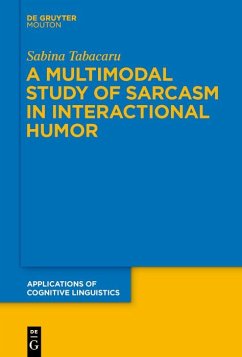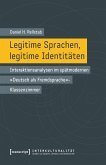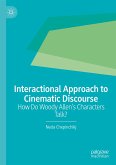The corpus-based approach to humor offers innovative and more than plausible objectives, supported by sound arguments, which underline the need to analyze humor both verbally and non-verbally.
The cognitive linguistic account of humor sets to analyze a corpus of humorous meanings in interaction and to present the elements that help to create the humorous effects: common ground, intersubjectivity, facial expressions, speakers' attitude, etc. The large corpus of examples annotated in ELAN offers a much-needed multimodal perspective of humor, which encompasses all the different techniques used by speakers.
The present analysis offers inspiring insight for future research, in different fields of study: multimodality, humor, and psycholinguistics. The study reveals the need of analyzing both verbal and non-verbal elements in discourse in general and humor in particular as co-speech gestures are essential for the understanding of the message as intended by the speakers.
The cognitive linguistic account of humor sets to analyze a corpus of humorous meanings in interaction and to present the elements that help to create the humorous effects: common ground, intersubjectivity, facial expressions, speakers' attitude, etc. The large corpus of examples annotated in ELAN offers a much-needed multimodal perspective of humor, which encompasses all the different techniques used by speakers.
The present analysis offers inspiring insight for future research, in different fields of study: multimodality, humor, and psycholinguistics. The study reveals the need of analyzing both verbal and non-verbal elements in discourse in general and humor in particular as co-speech gestures are essential for the understanding of the message as intended by the speakers.
Dieser Download kann aus rechtlichen Gründen nur mit Rechnungsadresse in A, B, BG, CY, CZ, D, DK, EW, E, FIN, F, GR, HR, H, IRL, I, LT, L, LR, M, NL, PL, P, R, S, SLO, SK ausgeliefert werden.



